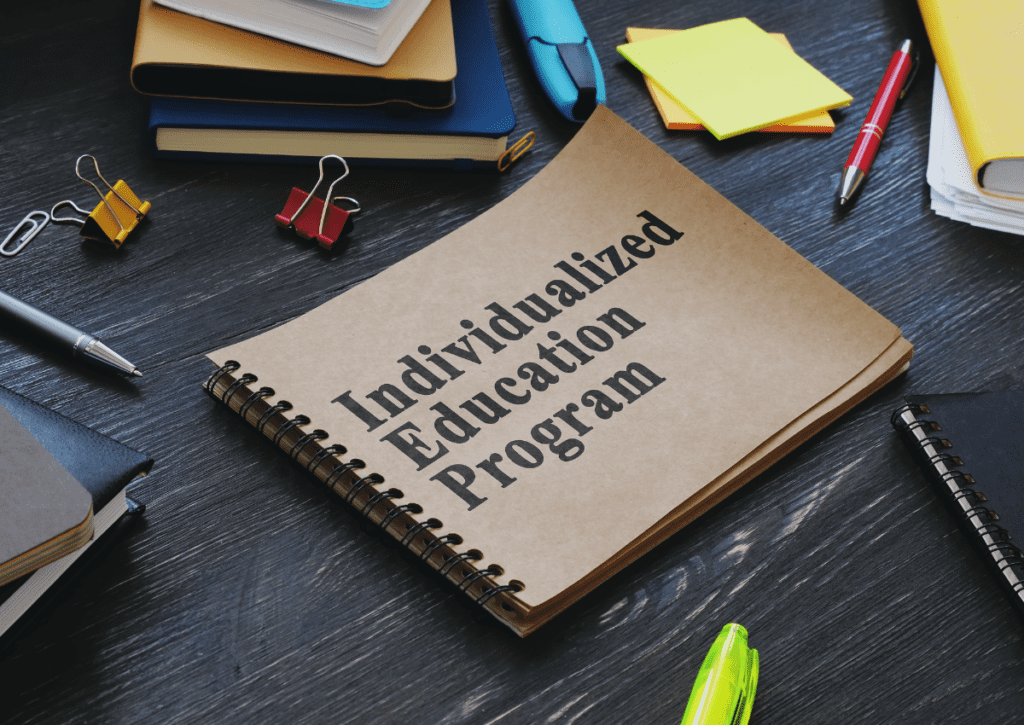
Preparing For Your Child’s IEP
There are a ton of resources out there if you do a Google search for “IEP tools” or “preparing for an IEP”. It can be overwhelming. We want to provide some information to help you sift through all the content so that you can walk into your child’s next IEP more confident than you did the last one.
One thing is for sure: when you have a child with autism, ADHD, Down syndrome, dyslexia, or any other condition that impacts their learning, becoming an expert in the IEP (Individualized Education Plan) process is necessary for parents. Read on for some tips and resources to help you in preparing for your child’s IEP.
Remember the law is on your side
First, there is the Individuals with Disabilities Education Act establishing the framework for what students with disabilities are entitled to in school – a Free and Appropriate Public Education (FAPE), in the Least Restrictive Environment (LRE).
And more recently there is the Endrew F. Decision in which the Supreme Court ruled in March 2017 that Individual Education Programs must give kids with disabilities more than a de minimis, or minimal, educational benefit. The Supreme Court ruled on the meaning of a free appropriate public education (FAPE). The case involved a boy with autism and ADHD, who made almost no progress on his IEP goals because his behavioral and academic needs weren’t addressed. Understood.org created this helpful resource as a result of this decision.
You are your child’s best advocate
Even with the law being on your side, the reality is, not all school districts are created equal. Whether it’s in the arts programming they provide or the special education services they offer, philosophies and services can vary widely from district to district and state to state. Know your rights as an equal member of the IEP team and be ready to step out of your comfort zone to advocate for what your child needs.
Walk in with the mindset that this is your child’s meeting, not a district meeting or a special education department meeting. Remember, you are the expert on your child. Come to the meeting with your own data – video of your child doing things, copies of their “’work”. They may not demonstrate their full potential during a standardized assessment, so compiling your own data can reinforce what you are advocating for!
Don’t forget the Parent Concerns Letter
Most IEP forms have a very small box for “Parent Concerns”. Know that you are not limited to how many words can fit in that box. You can draft an entire letter outlining your child’s needs and the concerns you have for their progress and learning. Here’s a great resource from A Day In Our Shoes specifically about the Parent Concerns Letter. Communicate your vision for your child and don’t allow anyone to change YOUR vision.
Framing the conversation
It’s important to tailor the conversation when it comes to preparing your child’s IEP. It is difficult to hear how your child stacks up to their typical peers. That’s the reality of the standardized assessments and evaluations presented by the IEP team. You know your child struggles with communication, fine motor, reading, math, or whatever it is. But to have that data in black and white can be quite sobering. Help set the tone by flipping weakness statements into strengths and needs statements. As this Brooke’s Publishing blog post states, by changing “can’t do” statements into “the student needs…” you will end up with an effective IEP that not only establishes high expectations, but also will meet your child’s needs.
What if you don’t agree with the IEP and/or others on IEP team
It’s OK to not finish within the first meeting. You can reconvene for a second (or third, or fourth) IEP meeting if necessary. And consulting with a special education advocate can be very helpful if your emotions are running high and you’re not feeling heard by the district. An advocate can help you with talking points, legality issues, and even attend the IEP with you to assist with communication between you and the school district representatives. Additionally, a free local resource for parents is Michigan Alliance for Families.
Additional Resources
There really is a TON of information out there to help you with your child’s IEP. Instead of making this post any longer, here are a few additional resources for you to check out:
- IEP and IEP Meetings: Everything a Mom Should Know from A Day In Our Shoes
- How To Tell If Your Child’s IEP Goals Are SMART from Understood.org
- IDEA, Special Education and IEP books from Wrightslaw
We hope these tips and resources for preparing for your child’s IEP prove to be helpful for you. And if you have any tips that you find especially helpful, please share them in the comments!
